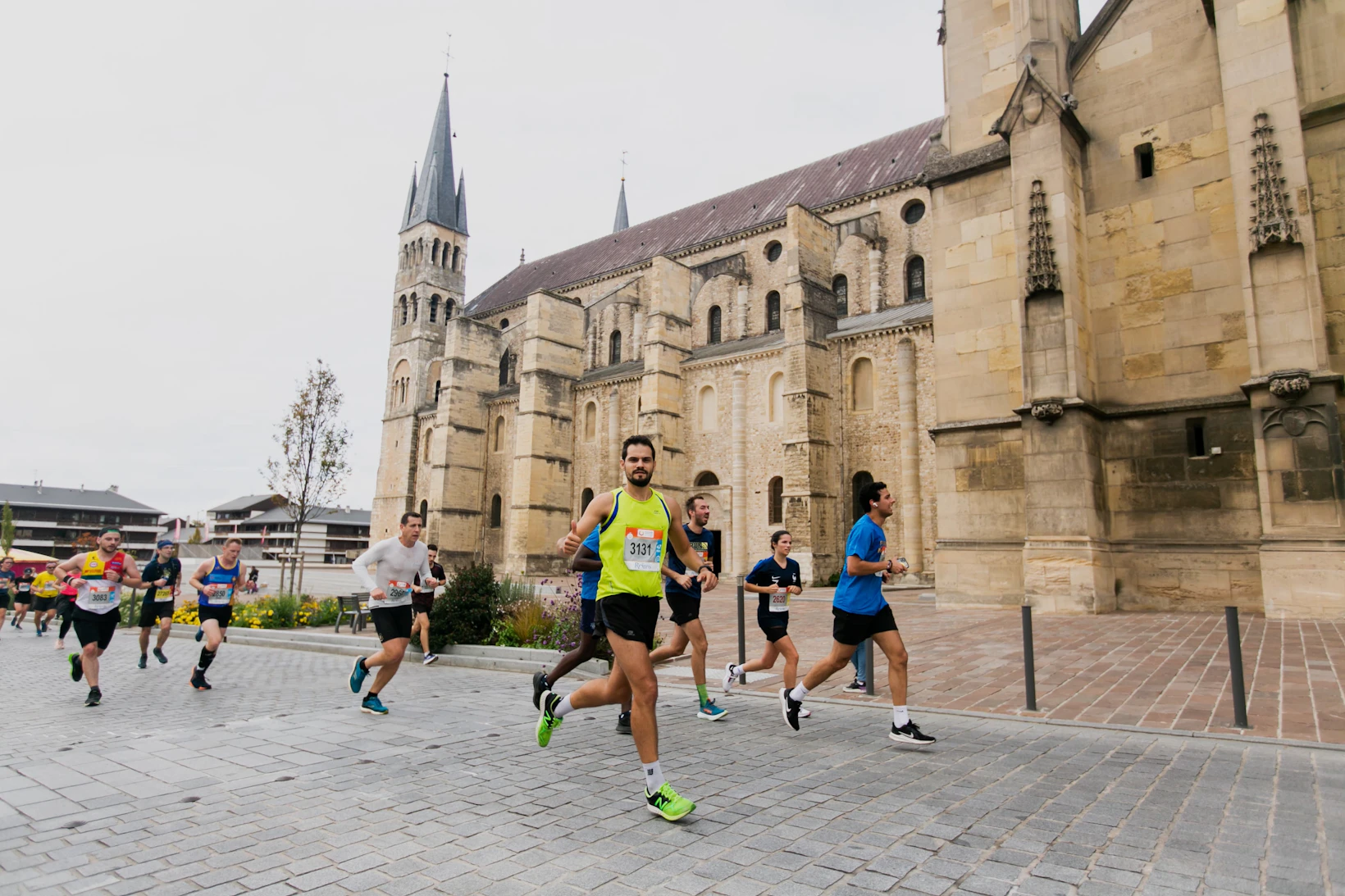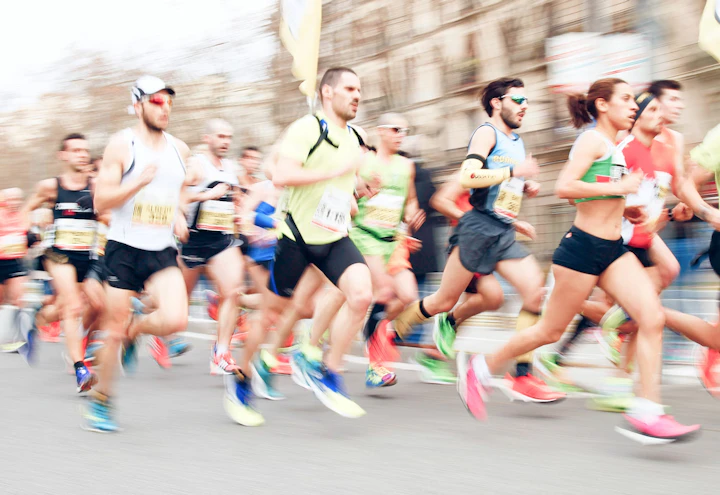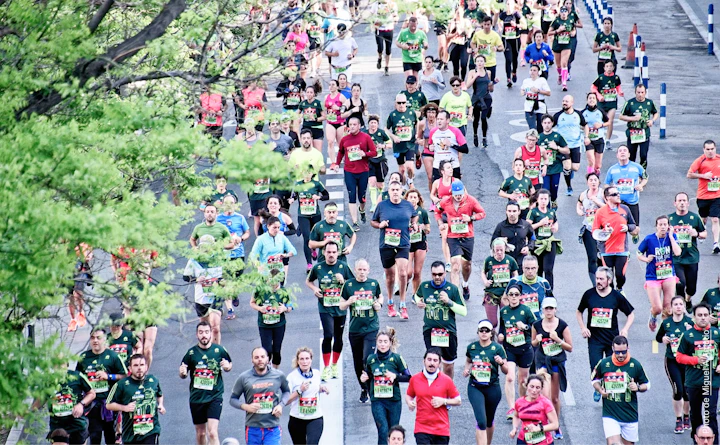Marathon: the story of a distance that has become mythical

Émilie
Published on , updated on
share

7 min read
Summary
What is the origin of the marathon?
From a battle in Greece to a race, why is the marathon named marathon?
A tribute to the messenger Phidippides, the first marathon runner
Why is 42.195 km exactly the marathon distance?
The marathon, an original idea by Michel Bréal…
… Modified by the British royal family
How many kilometers is a marathon now?
The marathon, a story of records
Spyridon Louis, forever the first winner of an Olympic marathon
The legend Eliud Kipchoge
Kelvin Kiptum and Tigist Assefa, the new king and queen of the marathon
A distance that brings together more and more amateur runners worldwide

Receive advice from our passionate coaches!
Mythical. That's often how the marathon is described. And nothing could better define this distance in light of its legend. From a Greek tale to a dream that has become achievable for many amateur runners, a look back at the history of the marathon.
What is the origin of the marathon?
From a battle in Greece to a race, why is the marathon named marathon?
No matter how surprising it may seem, the history of the marathon is closely linked to that of a battle and a man. In 490 BC, on the Greek beaches of the small town of Marathon, a battle pits the recently landed Persians against the Athenian and Plataean soldiers. As victory ultimately goes to the latter, a certain Phidippides (or Philippides) is tasked with going to announce the great news to the members of the City. For this, the brave messenger joins on foot from the city of Marathon to Athens, covering a distance of approximately 40 kilometers. A long journey which, some time after Phidippides delivered his message, took its toll on him.
A tribute to the messenger Phidippides, the first marathon runner
While versions of this story sometimes differ, Phidippides' feat remains undisputed. So much so that his name has entered posterity. From his bravery and his feat, the Greek victory in the Battle of Marathon gave birth, almost 3,000 years later, to the marathon event. An approximately 40-kilometer race, like the one Phidippides accomplished, a symbol of courage and self-transcendence. There you have it, these are the origins of the marathon.
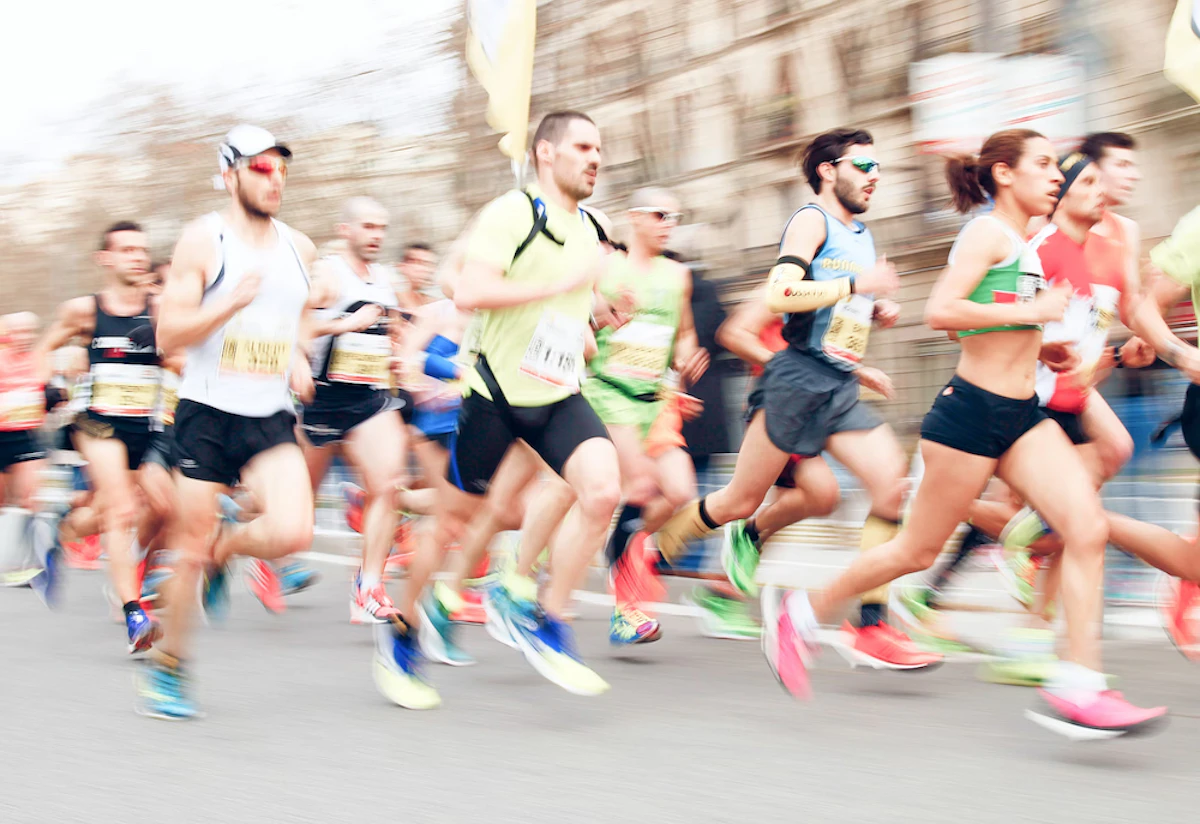
Why is 42.195 km exactly the marathon distance?
The marathon, an original idea by Michel Bréal…
Like many Greek tales, that of Phidippides has stood the test of time and has been a source of inspiration. Notably for the French linguist Michel Bréal who, in 1894, suggested to the famous Baron Pierre de Coubertin to create an event in honor of the Greek soldier during the first modern Olympic Games of 1896. The first approximately forty-kilometer race was then organized to recall the distance that separated the city of Marathon from Athens. The distance thus represented the path covered by the brave Phidippides. For several years, the marathon event was thus run over this distance.
… Modified by the British royal family
But in 1908, as London was about to host the Olympic Games, the royal family imposed a modification to the marathon distance. Even though the start was planned at Windsor Castle and the finish at White City Stadium - a total distance of 26 miles (41.843 kilometers) -, Edward VII demanded that the runners finish their marathon at the foot of the royal box... Thus adding a few meters to the course. In total, the twelve marathon runners starting on the starting line at the 1908 London Olympics had to cover 42.195 kilometers. A somewhat absurd distance, but which unexpectedly became the standard!
How many kilometers is a marathon now?
Since 1921, the official marathon distance is 42.195 kilometers. A few years after the London Olympic Games, the International Association of Athletics Federations finally decided to model its regulation on the London course and to impose a 42.195-kilometer course for the marathon event. And this for all competitions, whether national or international.
The marathon, a story of records
Spyridon Louis, forever the first winner of an Olympic marathon
Organized in 1896, the very first marathon of the modern Olympic Games was won by Spyridon Louis, a Greek shepherd who, against all odds, made history. With this victory, he set a first record (very impressive for the time) of 2 hours 58 minutes and 50 seconds.
That year, although the marathon event was not yet allowed for women, the Greek Stamáta Revíthi also crossed the finish line of the very first marathon in history. While others have since achieved this feat (Marie-Louise Ledru, Violet Piercy, Kathrine Switzer, and Bobbi Gibb) and marked their time, it was still necessary to wait until the 1984 Los Angeles Olympic Games for the very first official women's marathon to be organized.
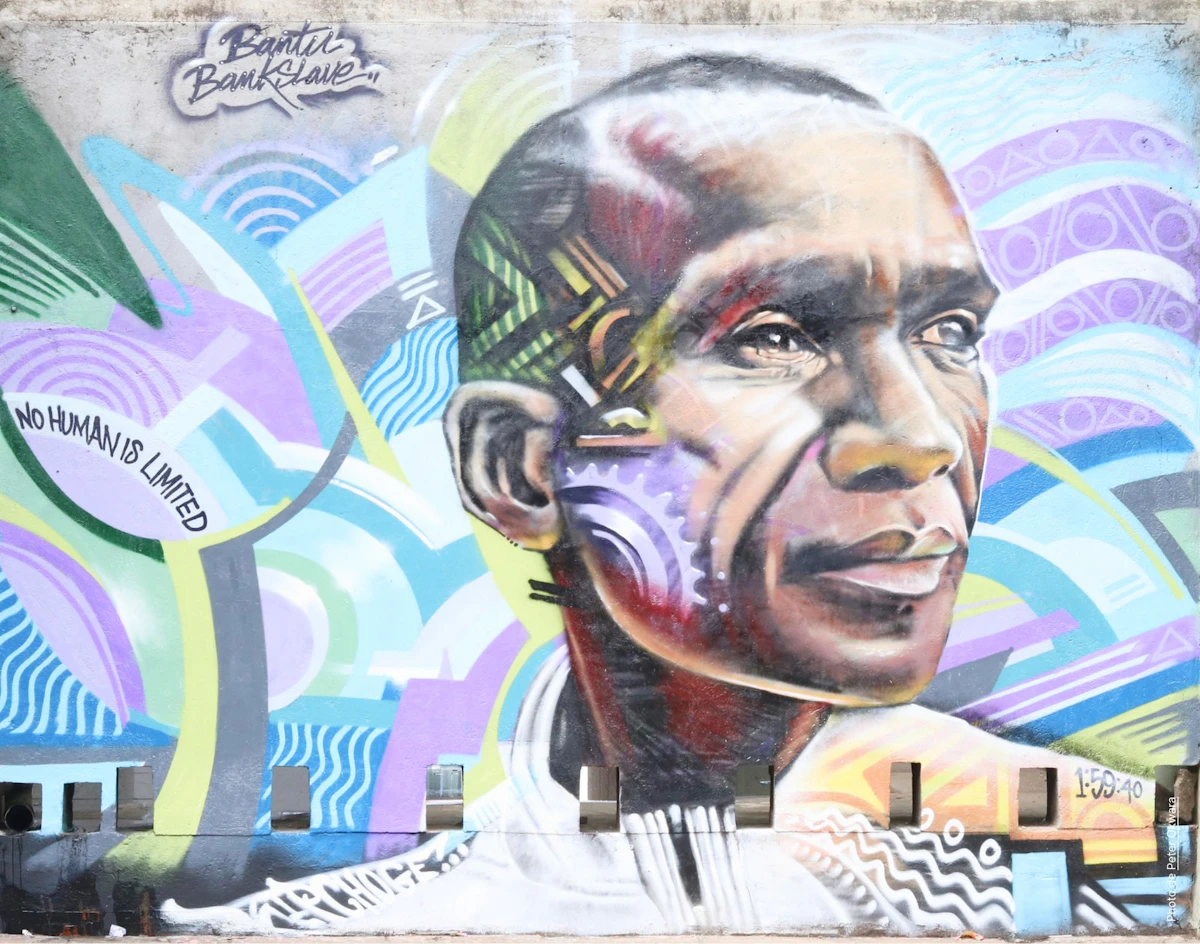
The legend Eliud Kipchoge
If there is a name that is generally associated with the marathon in recent years, it is undoubtedly the name of Eliud Kipchoge. Eleven-time winner of four of the six most prestigious marathons in the world and crowned Olympic champion in Rio in 2016 then in Tokyo in 2021, the Kenyan has also long held the men's world record. In 2018, in Berlin, he became the first man to finish a marathon in under 2 hours and 2 minutes (2 hours 1 minute and 39 seconds), before breaking his own record at the same place four years later (2 hours 1 minute and 9 seconds). A true legend, whom history is not ready to erase.
Kelvin Kiptum and Tigist Assefa, the new king and queen of the marathon
Apart from Eliud Kipchoge, two marathoners have recently inscribed their names in marathon history: Kelvin Kiptum and Tigist Assefa. The first broke, on October 8, 2023, the world record set by the legend Kipchoge by crossing the finish line of the challenging Chicago marathon in 2 hours 0 minutes and 35 seconds. A feat achieved at only 23 years old and while it was only the third marathon of his career. That day, Kelvin Kiptum became the first athlete to run under 2 hours and 1 minute, before abruptly passing away in February 2024.
For women, since September 24, 2023, the world record is held by the Ethiopian Tigist Assefa. On the occasion of the Berlin marathon, the thirty-year-old crossed the finish line in 2 hours 11 minutes and 53 seconds. Which is 2 minutes and 11 seconds less than the record set by Kenyan Brigid Kosgei in 2019! Just like Kelvin Kiptum, in late 2023, Tigist Assefa has thus entered the legend of the mythical marathon distance.
A distance that brings together more and more amateur runners worldwide
While in recent years, the times achieved in marathons at the highest level have never been so low, the number of races organized and participants has never been so high. In total, nearly 800 marathons are organized each year around the world, bringing together ever more amateur runners. The six World Marathon Majors are among the most prestigious races: Berlin, Boston, Tokyo, Chicago, London and New York. But the event that gathers the most runners each year is undeniably the Paris Marathon. In 2024, over 54,000 participants took on the mythical distance in the heart of the City of Light! That is to say, nearly 300 years after its inception, the challenge that the marathon distance represents has become democratized. And with a good training plan, it has become a (realistic) goal for many enthusiastic running amateurs.
As proof, the 2025 edition of the Paris Marathon once again generated incredible enthusiasm and helped to create new incredible stories. Discover Caro and Manon's feedback!
From the battlefields of Marathon in Ancient Greece to the grandeur of the Olympic Stadium and the ceremonial vantage of the Royal Box, the story of the Olympic Marathon invites us to step into something extraordinary. The standardisation of the marathon distance at 42,195 km may owe its shape to a regal request in London, starting from Windsor Castle, yet its spirit draws us back through time, to the ancient messenger and the homeland of endurance. Today, every runner who takes on the marathon distance is not just chasing a finish line—they are tracing a line through history, honouring a myth and embracing their own potential. Whether you’re lacing up your shoes for your first race or your fiftieth, remember: you run in the footsteps of legends, in a story that spans centuries and sovereignty, from ancient Greece to modern stadia. Keep running — the legacy is yours.
There you go, you now have all the keys to understand the royal distance, from its origins to its current success! And if you also took on this extraordinary challenge?

Émilie
Published on , updated on
share

